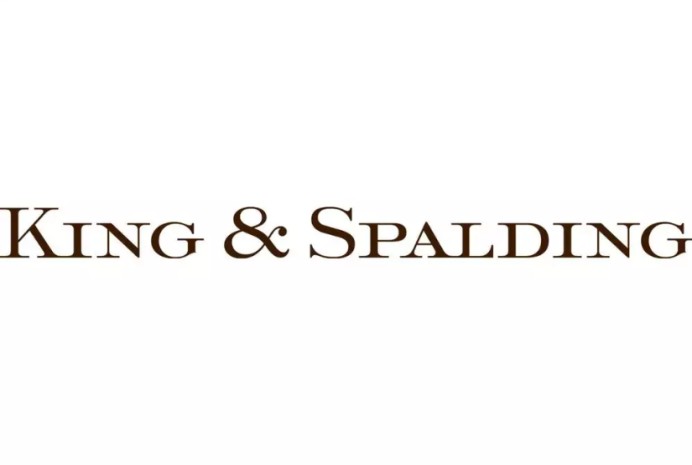
Law360 31/01/2019

King & Spalding LLP's role in getting an international tribunal to declare fraudulent a roughly $9.5 billion award against Chevron in an Ecuadorian pollution case earned it a spot among Law360's 2018 Environmental Practice Groups of the Year.
The firm mounted vigorous defenses of large energy companies, helping Chevron Corp. take on both the Ecuadorian pollution ruling and Richmond, California, in a case over an oil refinery fire. It also represented ConocoPhillips in climate change suits launched by cities in California and New York.
More than a decade of intense battles led up to the firm's victory for Chevron in August, when a tribunal of The Permanent Court of Arbitration in The Hague wiped out the $9.5 billion award, which stemmed from alleged pollution in the oil-rich Lago Agrio region of the Amazon rainforest. The tribunal unanimously found fraudulent an Ecuadorian court's 2011 decision to award the damages to members of the country's indigenous population, who claimed Texaco Petroleum Co., an indirect subsidiary of Chevron, had contaminated the area. In 2014, a New York federal judge also declared the award fraudulent.
The firm has worked on Chevron's arbitration fight with Ecuador since 2009. Six environmental attorneys at the firm were part of a team that argued at the tribunal that TexPet had already fulfilled its remediation obligations under a 1995 agreement with Ecuador.
"As a matter of international law, this award confirms Chevron is not obliged to comply with the Ecuadorian judgment," said Carol Wood, who heads the firm's toxic and environmental tort group. "This success is a great example of the collaboration that occurs between King & Spalding's international arbitration and environmental practices."
The tribunal's award seeks to "wipe out all the consequences" of the Ecuadorian ruling by barring the country from collecting the $9.5 billion judgment and compensating Chevron for any damages linked to it, Wood said.
The sprawling case also spurred Chevron to go on the offensive by targeting attorney Steven Donziger, who helped win the $9.5 billion judgment against the oil giant. Chevron told a New York federal judge in September that Donziger should be locked away for his role in the allegedly fraudulent Ecuadorian ruling.
The Amazon pollution case wasn't the only one that King & Spalding worked on for Chevron in 2018.
In May, the firm negotiated a $5 million settlement on Chevron's behalf in a suit by Richmond, California, over damages linked to a 2012 fire at one of the energy giant's crude oil refineries. Richmond sued Chevron in 2013, alleging the fire injured employees and led residents to seek medical attention, causing the city to suffer "ultrahazardous activity" and to lose property taxes.
In the run-up to the deal, Wood said Chevron took a "larger thematic approach" in its attack on Richmond's arguments. The company made the case that the fire didn't cause the damages the city was claiming and, before the settlement, the city abandoned claims linked to environmental damages after discovery.
King & Spalding's environmental team scored other victories for Big Oil in 2018, including helping release ConocoPhillips from litigation brought by California cities and New York City over infrastructure damage allegedly linked to climate change.
In June, a California federal judge scrapped litigation brought by San Francisco and Oakland against ConocoPhillips and other energy giants over damage from coastal flooding and other climate change-related developments, finding the issue was best left for the legislature. The cases are on appeal at the Ninth Circuit.
New York City's climate change case met a similar fate in July, when it was also tossed, though the Big Apple asked the Second Circuit for a second bite in November.
Part of the defense by the oil giants in the climate change litigation was not to cast doubt on the scientific consensus linked to climate change, but rather to attack the attempt by cities to use the courts to address global warming.
U.S. District Court Judge John Keenan of New York wrote in his July ruling that the "serious problems" from climate change are a "fact of life," but that they "are not for the judiciary to ameliorate" and instead "must be addressed by the two other branches of government."
King & Spalding's environmental practice group started off 2019 with the announcement of a major settlement between firm client Fiat Chrysler Automobiles NV and the federal government and consumers who claimed the automaker illegally installed so-called defeat devices in diesel fuel-powered vehicles to cheat emissions standards.
The firm's team, which included environmental partner Granta Nakayama, a former U.S. Environmental Protection Agency assistant administrator, helped negotiate an $884 million agreement to end the litigation. The federal government said the deal doesn't resolve possible criminal liability for Chrysler.
Looking back on the group's highlights, Nakayama described 2018 as a "tremendous year of growth.
Fuente OriginalNotas relacionadas